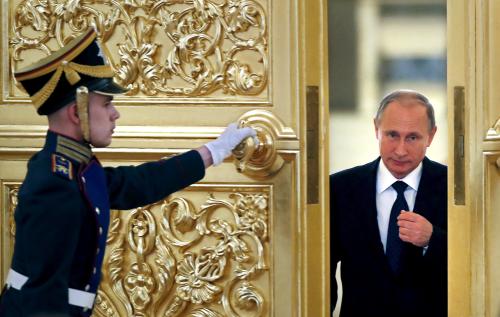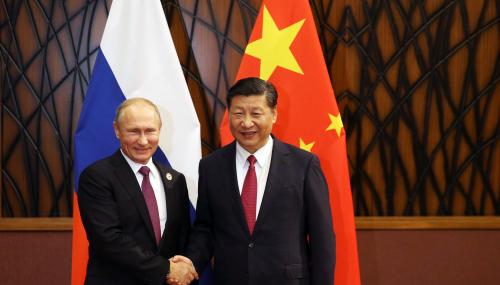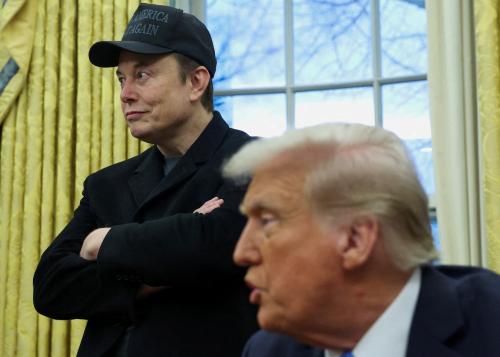Facing an evolving asymmetric political warfare threat from Russia and other actors, further complicated by artificial intelligence (AI), the growing availability of big data, and other developments, the West needs an effective “whole-of-society” response including better information sharing, greater investment in relevant research, and a deterrence strategy against political warfare with clearly defined consequences for specific offensive actions, David M. Rubenstein Fellow Alina Polyakova and Nonresident Senior Fellow Spencer P. Boyer argue in the fourth of a series of papers for the Brookings – Robert Bosch Foundation Transatlantic Initiative (BBTI).
Executive Summary
 The Kremlin’s political warfare against democratic countries has evolved from overt to covert influence activities. But while Russia has pioneered the toolkit of asymmetric measures for the 21st century, including cyberattacks and disinformation campaigns, these tools are already yesterday’s game. Technological advances in artificial intelligence (AI), automation, and machine learning, combined with the growing availability of big data, have set the stage for a new era of sophisticated, inexpensive, and highly impactful political warfare. In the very near term, it will become more difficult, if not impossible, to distinguish between real and falsified audio, video, or online personalities. Malicious actors will use these technologies to target Western societies more rapidly and efficiently. As authoritarian states such as Russia and China invest resources in new technologies, the global competition for the next great leap in political warfare will intensify. As the battle for the future shifts to the digital domain, policymakers will face increasingly complex threats against democracies. The window to mount an effective “whole-of- society” response to emerging asymmetric threats is quickly narrowing.
The Kremlin’s political warfare against democratic countries has evolved from overt to covert influence activities. But while Russia has pioneered the toolkit of asymmetric measures for the 21st century, including cyberattacks and disinformation campaigns, these tools are already yesterday’s game. Technological advances in artificial intelligence (AI), automation, and machine learning, combined with the growing availability of big data, have set the stage for a new era of sophisticated, inexpensive, and highly impactful political warfare. In the very near term, it will become more difficult, if not impossible, to distinguish between real and falsified audio, video, or online personalities. Malicious actors will use these technologies to target Western societies more rapidly and efficiently. As authoritarian states such as Russia and China invest resources in new technologies, the global competition for the next great leap in political warfare will intensify. As the battle for the future shifts to the digital domain, policymakers will face increasingly complex threats against democracies. The window to mount an effective “whole-of- society” response to emerging asymmetric threats is quickly narrowing.
This paper outlines the current state of play in political warfare, identifies emerging threats, and proposes potential policy responses. It argues for greater information sharing mechanisms between trans-Atlantic governments and the private sector, greater information security and transparency, and greater investments in research and development on AI and computational propaganda. As authoritarian regimes seek to undermine democratic institutions, Western societies must harness their current— though fleeting—competitive advantage in technology to prepare for the next great leap forward in political warfare. Western governments should also develop a deterrence strategy against political warfare with clearly defined consequences for specific offensive actions, while ensuring they retain their democracies’ core values of openness and freedom of expression.
The Brookings Institution is committed to quality, independence, and impact.
We are supported by a diverse array of funders. In line with our values and policies, each Brookings publication represents the sole views of its author(s).








